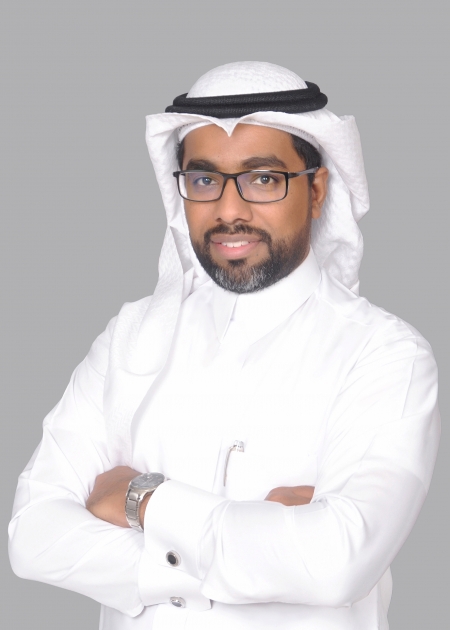
5G Holds The Key To Saudi Arabia’s Digital Future
At the dawn of a new decade, we have continued to leverage our technology towards our customers and achieved a significant milestone by securing the company’s 100th commercial 5G contract. As we celebrate this momentous occasion, we also celebrate being on the forefront of the 5G race and take a moment to look ahead at the mountains we must still climb.
Saudi Arabia was one of the first countries in the Middle East region where we collaborated with local operators to launch 5G. That is because Information and Communications Technology (ICT) is an important driver of Saudi Arabia’s digital economy which supports Saudi Arabia’s Vision 2030 toward economic diversification.
Above all, our 5G leadership will enable service providers champion technology that will help people of Saudi Arabia live healthier, more fulfilled lives, communicate wherever, and whenever, in real time and stay connected to the world around them with unlimited possibilities.
With 56 live 5G networks and 58 5G public contracts, Ericsson’s end-to-end 5G platform enables Saudi service providers to develop new 5G capabilities at a pace that matches their own business strategy – boosting current 4G business by making best use of existing infrastructure while evolving to the new technology.
This transformative collaboration between leading telecommunications service providers in Saudi Arabia and Ericsson is allowing the Kingdom’s people, businesses and society to fulfill their potential and create a more connected future.
A futuristic vision
As part of Vision 2030, Saudi Arabia’s government aims to develop ICT infrastructure, especially high-speed broadband, expand its coverage and capacity within and around cities and improving its quality. Its specific goal is to exceed 90% housing coverage in densely populated cities and 66% in other urban zones.
Hence, Saudi Arabia is developing building standards to facilitate the extension of broadband networks as well as strengthening the governance of digital transformation through a national council. Key drivers for immediate 5G deployment include increased network capacity, lower cost per gigabyte and new use case requirements.
Additionally, the Kingdom is working on establishing an effective partnership with telecom operators to better develop this critical infrastructure. In doing so, Saudi service providers face four key challenges while offering mobile broadband:
1. To manage exponential data traffic growth
2. To cater for rising speed and quality expectations
3. To monetize added customer value.
4. Nationwide 5G coverage
By enabling massive and highly cost-efficient capacity expansion & Ericsson Spectrum Sharing (ESS), 5G can help operators to address these challenges, while also creating significant economic benefits. Through advanced technologies that support digital transformation, Saudi service providers can align their digitization strategy with Saudi Arabia Vision 2030.
This has wide regional ramifications, as there are great economic benefits in taking advantage of a new wireless technology first, highlighted by the boom in the app economy in the region after its adoption of 4G.
A digital transformation
5G is the backbone for transformation in transportation and industries both in Saudi Arabia and across the Middle East and Africa– driving economic value in areas from enhanced mobile broadband to digital industry to helping combat climate change.
With unique ecosystems, advanced universities and high-tech companies, Saudi Arabia’s major cities are the perfect locations to launch 5G services with unprecedented speed and flexibility to empower innovation and a variety of use cases. For service provides, it offers tremendous potential for new and better customer experience while improving revenue streams.
Nowhere was this more evident than the holy pilgrimage of Hajj in 2019. Ericsson expanded local network coverage and enhanced end-user experience with the aim to provide one of the best networks during Hajj pilgrimage, which hosted around 2.5 million pilgrims. As a result, the pilgrims connected 24/7 with higher throughput than previous years.
As a network that caters for current and future services, 5G holds an immense potential for driving industry digitization and pioneering innovation. 5G will provide capacity to handle growing data traffic, as well as present opportunities for operators to grow top-line and improve their consumer business.
Mobile communications and the introduction of 5G could become significant enablers for Industry 4.0. In addition to facilitating the delivery of next-generation mobile broadband, cloud, and providing support for massive Internet of Things (IoT) deployment, 5G will also support new industry use cases thanks to increased throughput and reduced latency.
With a proactive approach on the evolution to 5G, investments in 5G-IoT use cases such as smart factories, connected vehicles, tactile shopping and smart cities will generate opportunities worth billions for Saudi service providers.
That said, Saudi Arabia’s 5G future ultimately depends on consumer expectations. Our research has helped us to understand how consumers both experience and think when it comes to 5G usage. In times of crisis such as the current pandemic, when connectivity is important for consumers to carry out work- and leisure-related activities, expectations for better network experiences become higher.
Given its continuous investment in advanced networks that support next generation technologies we believe that Saudi Arabia is on its way to solidify its role as a center for innovative excellence and it gives us great honor and pride to play a role in this journey by supporting the local communications service providers in the Kingdom.


























